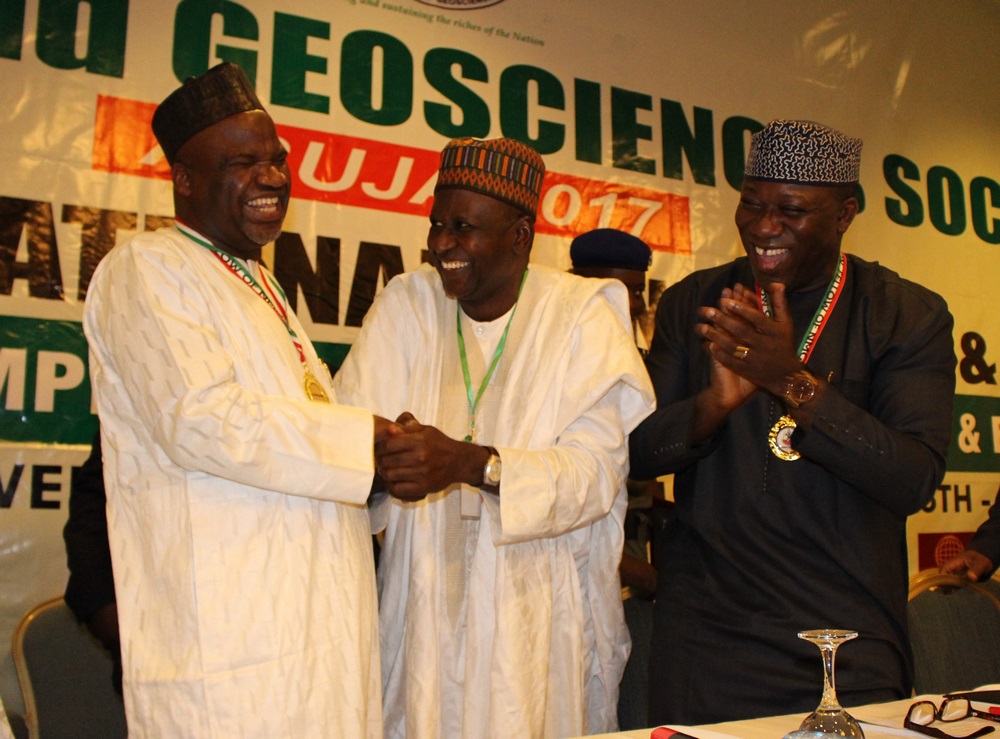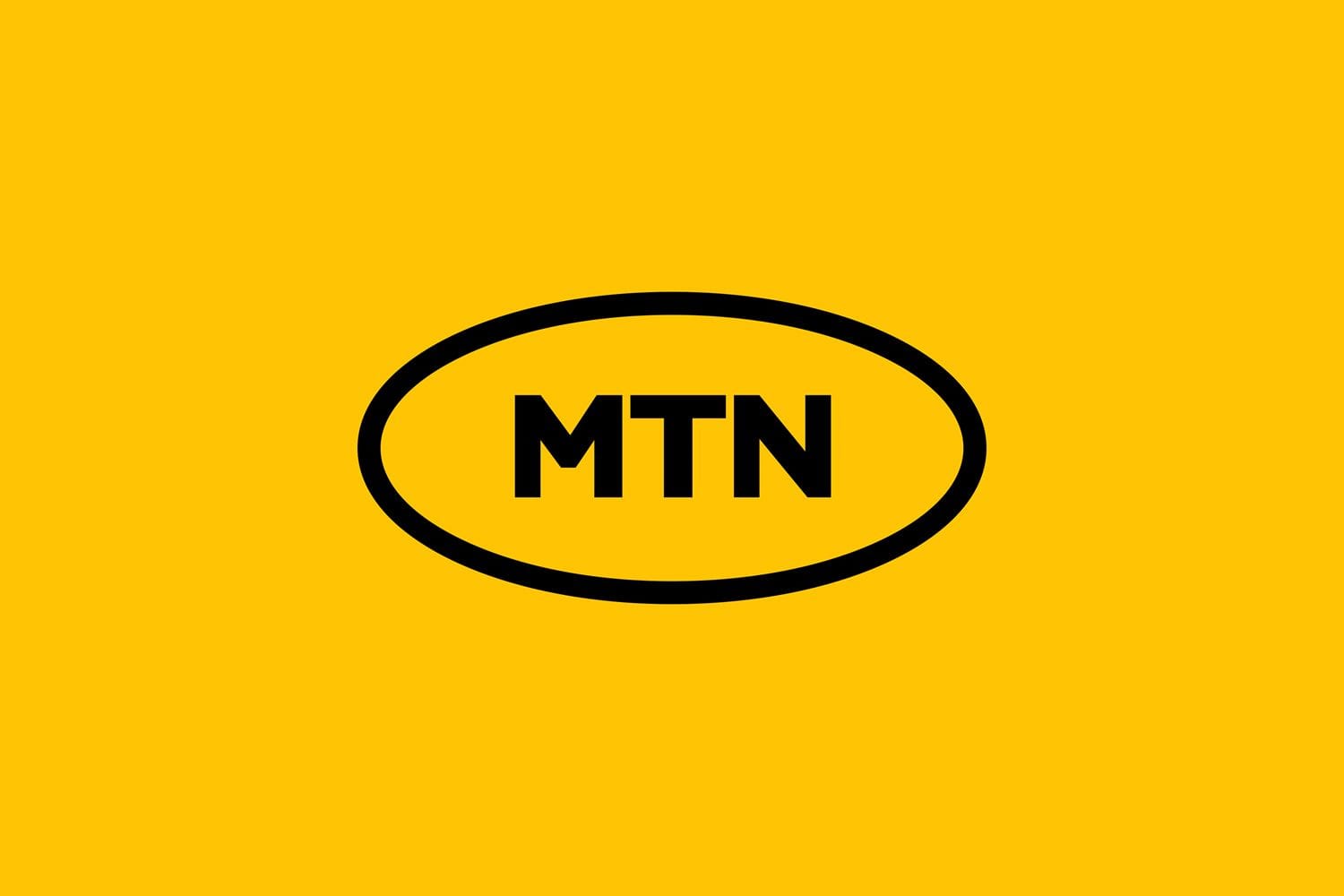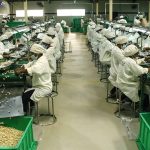Economy
Nigerian Miners, Geoscientists Question Search for Oil in ‘Boko Haram Territory’

By Modupe Gbadeyanka
Federal Government has been urged to explain to Nigeria why it is desperately searching for crude oil in a “hotly contested land” in the Chad Basin.
This question was asked by President of the Nigerian Mining and Geosciences Society (NMGS), Prof. Silas Sunday Dada, at a press conference held on Monday, July 31, 2017 to condemn the recent attack by suspected Boko Haram members on oil exploration team.
According to Prof Dada, “Nigerians deserve to know the real reason why NNPC decided to embark on the Maiduguri’s suicide mission of searching for crude oil at Shekau’s background at a time when production level has climbed to 2.2 million barrels per day.”
He said, “The present crude oil exploratory work is centred on a triangle of hotly contested land stretching from Gubio in the west of Borno to Marte in the east, and Kukawa, in the far northeast corner near the shores of Lake Chad.”
“Although it could not be established if the Tuesday attack by the Boko Haram sect is motivated by a desire to control oil in the northeast of Nigeria, but it is undisputable particularly in recent months, that the group has been forced by the superior force of the military’s ‘operation dole’ in the area to rely on guerrilla tactics, particularly suicide bomb attacks, against the security forces and civilian militia.
“This involved the use of women and young girls in particular to detonate improvised bombs against civilian ‘soft’ targets such as mosques, churches as well as the University of Maiduguri, which teaches the ‘western’ education the group despises,” he added.
Read the full transcript of the press conference below;
The growing deadly attacks by the Boko Haram Group in the Northeast of Nigeria – a clarion call for negotiation before the precipice
“Those who would hunt a man should remember that the Jungle also contain those who hunt the hunters”– Malcom X
Preamble
We have been watching with painful indignation, the spate of deadly attacks and wanton destruction of lives and properties being perpetrated by the deadly Boko Haram Group mostly in the northeastern Nigeria especially in Borno State in the last five (5) years. It is indeed an open secret that the deadly group has been holding out in the Maiduguri axis, launching expeditionary raids and dispatching suicide bombers to perpetrate cruelty to a shock. Their inhuman predation in that zone has become the staple news being dished out almost on daily basis to the helpless frustration of Nigerians.
It is apposite to start this short briefing with a plea that no one should misconstrue this press briefing we are holding right now as a ploy to castigate the government for what it ought to have done or ought not to have done on the issue of Boko Haram. Nothing of such is intended. We cannot however look helplessly and refuse to speak when our brothers, friends and professional colleagues were brutally murdered in the course of their national duties to this country last Tuesday by the dreaded Boko Haram sect. We feel indeed very sad and grieved by the untimely death of these patriotic men and only time can heal the wound left in our hearts by their sudden departure.
It is obvious that the recent sustained offensive by the Boko Haram group is to openly challenge and contest the government’s story on their degradation. It is saddening to observe that the celebrated claim by the Nigerian military for about a year now, over the “degradation of Boko Haram” which created the flippant impression that the rebellious group has been demoralized, demobilized, defeated and vanquished, was far from being true after all, as recent happenings have proved otherwise.
To worsen the situation, the same military rained bombs on the IDP camp at Rann, a sanctuary of the helpless refugees which it presumed to be the hideaway of the terrorists. The erroneous bombardment wasted 54 precious lives!
Although the need to grow Nigeria’s crude oil reserves must have motivated the government to intensify efforts on oil exploratory work in the inland Chad basin and Benue Trough areas, Nigerians deserve to know the real reason why NNPC decided to embark on the Maiduguri’s suicide mission of searching for crude oil at Shekau’s background at a time when production level has climbed to 2.2 million barrels per day. Sadly enough, this daredevil stunt has unjustifiably created a new set of widows and fatherless children.
The present crude oil exploratory work is centered on a triangle of hotly contested land stretching from Gubio in the west of Borno to Marte in the east, and Kukawa, in the far northeast corner near the shores of Lake Chad. Although it could not be established if the Tuesday attack by the Boko Haram sect is motivated by a desire to control oil in the northeast of Nigeria, but it is undisputable particularly in recent months, that the group has been forced by the superior force of the military’s “operation dole” in the area to rely on guerilla tactics, particularly suicide bomb attacks, against the security forces and civilian militia. This involved the use of women and young girls in particular to detonate improvised bombs against civilian “soft” targets such as mosques, churches as well as the University of Maiduguri, which teaches the “western” education the group despises.
The Dark Tuesday – Our Agony
It is no longer news that more than 50 people were killed in a Boko Haram ambush on an oil exploration team in northeast Nigeria on Tuesday last week with the possibility that the death toll could rise. What happened last week underscored the persistent threat posed by the jihadists, despite government claims they were a spent force, and also the risks associated with the hunt for crude oil in the volatile Lake Chad basin. It is noteworthy to state that the Tuesday’s attack in the Magumeri area of Borno state on a convoy of specialists from the Nigerian National Petroleum Corporation (NNPC) was the militants’ deadliest in months.
It should be noted that details of the ambush, which we initially thought to be a kidnapping case, have been slow to emerge and an exact death toll is difficult to establish, as the military strictly controls access to rural Borno. Worst still, telecommunications and other infrastructure have been severely damaged or destroyed in that part of the country over the years in the raging Boko Haram bloody escapade, which has left over 20,000 people dead and more than 2.6 million homeless since 2009. One source involved in dealing with the aftermath of the unfortunate event which took place on Tuesday revealed that the death toll has increased to more than 50 with a prospect that more casualties may be recorded.
It is crystal clear that the recent attack was not for abduction but rather to kill and show that the government’s claim of an incapacitated Boko Haram is a fallacy.
An aid agency worker in Magumeri, which is 50 kilometers northwest of Maiduguri revealed that a total of 47 bodies have been recovered from the bush as of Wednesday evening. Information at our disposal shows that “eleven of them were burned alive in their vehicle, which was stuck in a trench, and were buried in Magumeri as they could not be taken to Maiduguri”.
It should be placed on record that out of the nine (9) staff of the University of Maiduguri involved in the unfortunate attack, five (5) are geologists out of which two (2) have been killed, two (2) abducted and one (1) is still missing. Boko Haram insurgents have released a video of the two geologists abducted along with their driver. The video according to reports was recorded on Friday July 28, 2017 and sent to Channels Television. The two (2) geologists are Mr. Yusuf Ibrahim and Dr. Solomon N. Yusuf who are lecturers in the Geology Department of the University along with a driver of the University identified as Mr. Haruna Dashe, were seen in the video fervently appealing to the Federal Government, the University of Maiduguri administration and the NNPC to avoid the use of force and secure their release through a peaceful negotiation with the Abu Musab al-Barnawi’s group of the insurgents who are holding them in captivity
The names of some of the deceased staff of UNIMAID include Dr. Militus Joseph V., Dr Manaja M. Uba of Geology Dept, Idris Abubakar Njodi (Driver)and Dr. Daniel Birma and Mohammed Kamfo of the Soil Science Dept.
The Journey to the Precipice – How did we get to where we are?
The name “Boko Haram” which is usually translated as “Western education is forbidden” was founded in 2002 as a radicalized fundamentalist group in Maiduguri, but also active in Chad, Niger and northern Cameroun. The group came into limelight with increasing radicalization leading to a violent uprising in July 2009 during which its leader, Mohammed Yusuf, was summarily executed.
The group’s unexpected resurgence was marked by a mass prison break in September 2010 which was accompanied by increasingly sophisticated attacks, initially against soft targets, and progressing in 2011 to include suicide bombings of police buildings and the United Nations office in Abuja
Mohammed Yusuf who founded the sect that became known as Boko Haram in Maiduguri, the capital of the north-eastern state of Borno, established a complex group and school that attracted poor individuals and families from across Nigeria and neighboring countries. The center had the political goal of creating a state of anarchy, and became a recruiting ground for terrorists.
By denouncing the police and state corruption, Yusuf attracted followers from unemployed youth and in fact, it has been speculated that the real reason Yusuf founded Boko Haram was to use the opportunity to exploit public outrage at government corruption by linking it to Western influence in governance.
The government’s declaration of a state of emergency at the beginning of 2012, extended in the following year to cover the entire northeast of Nigeria, led to an increase in both security force abuses and militant attacks. In 2014 alone, Boko Haram had killed over 6,600 and in April 2014, the group have carried out mass abductions including the kidnapping of 276 schoolgirls from Chibok in Borno State. By mid-2014, the militants had gained control of some territories in and around their home state of Borno and expand up to about 50,000 square kilometres in January 2015, but failed to capture the state capital, Maiduguri, where the group was originally based.
The group was led by Abubakar Shekau until August 2016, when the group purportedly broke into two (2): one faction led by Abubakar Shekau and the other supposedly led by Abu Musab al-Barnawi.
The group at various times had alleged links to al-Qaeda and in March 2015, it announced its allegiance to the Islamic State of Iraq and the Levant (ISIL). Since the current insurgency started in 2009, the group has killed 20,000 victims, displaced 2.3 million from their homes and was ranked as the world’s deadliest terror group by the Global Terrorism Index in 2015.
Our Position
It is a known fact that man is not a creation of logic but rather, a creation of emotion, love and prejudice. He is bound to be happy at times of peace and grieves at times of adversity; he is receptive to justice/good governance and repulsive towards injustice/maladministration. It is in the light of this that the Nigerian Mining & Geosciences Society (NMGS) as a professional body feel grieved by the recent security challenges being faced at this point in our national life, particularly the ongoing carnage being perpetrated by the dreaded Boko Haram sect, in spite of the seriousness of the current federal government in bringing the dastardly acts to an end.
We owe ourselves, and generations to come, the obligation to commend the efforts of the present Administration of President Muhammadu Buhari over the serious attention given to the issue of Boko Haram since inception of this government. The huge amount of fund and human resources committed to fight the Boko Haram group to a standstill largely underscore the successes recorded so far. It is however sad to note that if the previous administration had handled the Boko Haram saga the way the present administration is doing, the story may have been different today. Those who were saddled with the constitutional obligation of protecting the lives and properties of citizens of the Nigerian State as well as its territorial integrity chose to do otherwise as evident in recent revelation of how the state resources meant to fight the Boko Haram insurgence was diverted for personal use. Corruption in the security services and human rights abuses committed by them during the previous administration have hampered efforts to counter the unrest and nib it in the bud.
While our great Society commends the pragmatic approach of the present administration in putting a stop to this national disgrace called Boko Haram, we want the military to urgently swing into action and adopt negotiation method which has shown to be more effective and life-saving than the use of force as witnessed in the release of substantial number of Chibok school girls, to rescue our colleagues and all others in captivity of the Boko Haram. We also wish to state that the war against Boko Haram insurgency in Nigeria has dragged on for too long and we therefore urge the Federal Government to redouble its efforts in the fight against the insurgency in the Northeast so that the Boko Haram problem is stamped out permanently sooner than later.
Conclusion
On behalf of myself and the entire esteemed members of our Society, we wish to restate our renewed confidence in the ability of the present administration of His Excellency President Muhammadu Buhari and the acting President Prof. Yemi Osinbajo in tackling the Boko Haram issue once and for all. We commend your efforts so far and pledge our sincere prayers towards overcoming this problem.
Once again, we urge the Federal Government to adopt the use of negotiation to secure the release of the Boko Haram captives by doing everything humanly possible to meet the demands of the sect. We also share in the grief being suffered by the families of the deceased professional colleagues and the traumatic agony those in Boko Haram captivity and their families are currently being subjected to. We pray the Almighty God help us all to surmount the barrage of problem being faced in both our national and private lives.
Ladies and Gentlemen of the Press, I sincerely thank you for standing by us at this critical time in the Society’s history. God bless you all.
Prof. Silas Sunday DADA (fnmgs)
President, Nigerian Mining and Geosciences Society
Economy
Nigeria Inaugurates Strategy to Tap into $7.7trn Global Halal Market

By Adedapo Adesanya
President Bola Tinubu on Thursday inaugurated Nigeria’s National Halal Economy Strategy to tap into the $7.7 trillion global halal market and diversify its economy.
President Tinubu, while inaugurating the strategy, called for disciplined, inclusive, and measurable action for the strategy to deliver jobs and shared prosperity across the country.
Represented by Vice-President Kashim Shettima, he described the unveiling of the strategy as a signal of Nigeria’s readiness to join the world in grabbing a huge chunk of the global halal economy already embraced by leading nations.
“As well as to clearly define the nation’s direction within the market, is expected to add an estimated $1.5 billion to the nation’s Gross Domestic Product (GDP) by 2027. It is with this sense of responsibility that I formally unveil the Nigeria National Halal Economy Strategy.
“This document is a declaration of our promise to meet global standards with Nigerian capacity and to convert opportunity into lasting economic value. What follows must be action that is disciplined, inclusive, and measurable, so that this Strategy delivers jobs, exports, and shared prosperity across our nation.
“It is going to be chaired by the supremely competent Minister of Industry, Trade and Investment.”
The president explained that the halal-compliant food exports, developing pharmaceutical and cosmetic value chains would position Nigeria as a halal-friendly tourism destination, and mobilising ethical finance at scale,” by 2030.
“The cumulative efforts “are projected to unlock over twelve billion dollars in economic value.
“While strengthening food security, deepening industrial capacity, and creating opportunities for small-and-medium-sized enterprises across our states,” he added.
Allaying concerns by those linking the halal with religious affiliation, President Tinubu pointed out that the global halal economy had since outgrown parochial interpretations.
“It is no longer defined solely by faith, but by trust, through systems that emphasise quality, traceability, safety, and ethical production. These principles resonate far beyond any single community.
“They speak to consumers, investors, and trading partners who increasingly demand certainty in how goods are produced, financed, and delivered. It is within this broader understanding that Nigeria now positions itself.”
Tinubu said many advanced Western economies had since “recognised the commercial and ethical appeal of the halal economy and have integrated it into their export and quality-assurance systems.”
President Tinubu listed developed countries, including the United Kingdom, France, Germany, the Netherlands, the United States, Canada, Australia, and New Zealand.
“They are currently among the “leading producers, certifiers, and exporters of halal food, pharmaceuticals, cosmetics, and financial products.”
He stated that what these developed nations had experienced is a confirmation of a simple truth, that “the halal economy is a global market framework rooted in standards, safety, and consumer trust, not geography or belief.”
The president explained that the Nigeria national halal economy strategy is the result of careful study and sober reflection.
He added that it was inspired by the commitment of his administration of “to diversify exports, attract foreign direct investment, and create sustainable jobs across the federation.
“It is also the product of deliberate partnership, developed with the Halal Products Development Company, a subsidiary of the Saudi Public Investment Fund.
“And Dar Al Halal Group Nigeria, with technical backing from institutions such as the Islamic Development Bank and the Arab Bank for Economic Development in Africa.”
The Minister of Industry, Trade and Investment, Mrs Jumoke Oduwole, said the inauguration of the strategy was a public-private collaboration that has involved extensive interaction with stakeholders.
Mrs Oduwole, who is the Chairperson, National Halal Strategy Committee, said that the private sector led the charge in ensuring that it is a whole-of-government and whole-of-country intervention.
The minister stressed that what the Halal strategy had done for Nigeria “is to position us among countries that export Halal-certified goods across the world.
The minister said, “We are going to leverage the African Continental Free Trade Area (AfCFTA) to ensure that we export our Halal-friendly goods to the rest of Africa and beyond to any willing markets; participation is voluntary. “
She assured that as the Chairperson, her ministry would deliver on the objectives of the strategy for the prosperity of the nation.
The Chairman of Dar Al-Halal Group Nigeria L.td, Mr Muhammadu Dikko-Ladan, explained that the Halal Product Development Company collaborated with the group in developing the strategy.
“In addition to the strategy, an export programme is underway involving the Ministry of Trade and Investment, through which Nigerian companies can be onboarded into the Saudi Arabian market and beyond.£
Mr Dikko-Ladan described the Strategy as a landmark opportunity for Nigeria, as it creates market access and attracts foreign direct investment.
Economy
UK, Canada, Others Back New Cashew Nut Processing Plant Construction in Ogun

By Adedapo Adesanya
GuarantCo, part of the Private Infrastructure Development Group (PIDG), has provided a 100 per cent guarantee to support a $75 million debt facility for Robust International Pte Ltd (Robust) to construct a new cashew nut processing plant in Ogun State, Nigeria.
GuarantCo, under the PIDG is funded by the United Kingdom, the Netherlands, Switzerland, Australia, Sweden and Canada, mobilises private sector local currency investment for infrastructure projects and supports the development of financial markets in lower-income countries across Africa and Asia.
Nigeria is one of Africa’s largest cashew producers of 300,000 tonnes of raw cashew nuts annually, yet currently less than 10 per cent are processed domestically. Most raw nuts are exported unprocessed to Asian and other countries, forfeiting up to 80 per cent of their potential export value and adding exposure to foreign exchange fluctuations.
According to GuarantCo, this additional plant will more than double Robust’s existing cashew processing capacity from 100 metric tonnes per day to 220 metric tonnes per day to help reduce this structural gap.
The new plant will be of extensive benefit to the local economy, with the procurement of cashew nuts from around 10,000 primarily low-income smallholder farmers.
There is an expected increase in export revenue of up to $335 million and procurement from the local supply chain over the lifetime of the guarantee.
Furthermore, the new plant will incorporate functionality to convert waste by-products into value-added biomass and biofuel inputs to enhance the environmental impact of the transaction.
It is anticipated that up to 900 jobs will be created, with as many as 78 per cent to be held by women. Robust also has a target to gradually increase the share of procurement from women farmers, from 15 per cent to 25 per cent by 2028, as it reaches new regions in Nigeria and extends its ongoing gender-responsive outreach programme for farmers.
Terms of the deal showed that the debt facility was provided by a Symbiotics-arranged bond platform, which in turn issued notes with the benefit of the GuarantCo guarantee. These notes have been subscribed to in full by M&G Investments. The transaction was executed in record time due to the successful replication of two recent transactions in Côte d’Ivoire and Senegal, again in collaboration with M&G Investments and Symbiotics.
Speaking on the development, the British Deputy High Commissioner, Mr Jonny Baxter, said: “The UK is proud to support innovative financing that mobilises private capital into Nigeria’s productive economy through UK-backed institutions such as PIDG. By backing investment into local processing and value addition, this transaction supports jobs, exports and more resilient agricultural supply chains. Complementing this, through the UK-Nigeria Enhanced Trade and Investment Partnerships and the Developing Countries Trading Scheme, the UK is supporting Nigerian businesses to scale exports to the UK and beyond, demonstrating how UK-backed partnerships help firms grow and compete internationally.”
Mr Dave Chalila, Head of Africa and Middle East Investments at GuarantCo, said: “This transaction marks GuarantCo’s third collaboration with M&G Investments and Symbiotics, emphasising our efforts to bring replicability to everything we do so that we accelerate socio-economic development where it matters most. The transaction is consistent with PIDG’s mandate to mobilise private capital into high-impact, underfinanced sectors. In this case, crowding in institutional investors in the African agri-processing value chain.
“As with the two recent similarly structured transactions, funding is channelled through the Symbiotics institutional investor platform, with the notes externally rated by Fitch and benefiting from a rating uplift due to the GuarantCo guarantee.”
Adding his input, Mr Vishanth Narayan, Group Executive Director at Robust International Group, said: “As a global leader in agricultural commodities, Robust International remains steadfast in its commitment to building resilient, ethical and value-adding supply chains across origin and destination markets. This transaction represents an important step in advancing our long-term strategy of strengthening processing capabilities, deepening engagement with farmers and enhancing local value addition in the regions where we operate. Through sustained investment, disciplined execution and decades of operating experience, we continue to focus on delivering reliable, high-quality products while fostering inclusive and sustainable economic growth.”
For Ms María Redondo, director at M&G Investments, “The guarantee gives us the assurance to invest in hard currency, emerging market debt, while supporting Robust’s new cashew processing plant in Nigeria. It’s a clear example of how smart credit enhancement can unlock institutional capital for high-impact development and manage currency and credit risks effectively. This is another strong step in channelling institutional capital into meaningful, on‑the‑ground growth.”
Also, Ms Valeria Berzunza, Structuring & Arranging at Symbiotics, said: “We are pleased to continue our collaboration with M&G Investments, GuarantCo, and now with Robust through a transaction with a strong social and gender focus, demonstrating that well-structured products can boost commercially attractive, viable, and impactful investments.”
Economy
MTN to Acquire Additional 75% Stake in IHS Holdings for Full Control

By Adedapo Adesanya
MTN Group, Africa’s largest mobile network operator, has entered advanced discussions to buy approximately 75 per cent of shares in IHS Holding Limited (IHS Towers) that it does not already own.
The move would give the South African telco full control of IHS, which is the leading independent tower operator in several of its key markets, providing colocation services and supporting the expansion of mobile networks in regions with growing demand for digital connectivity.
In a cautionary announcement to investors on Thursday, MTN confirmed it is considering a transaction to acquire the remaining stake in the New York Stock Exchange-listed IHS, following recent market speculation.
The potential offer price would be “at a level near the last trading price” of IHS shares on the NYSE as of February 4, 2025, a period when the stock has seen a sharp rise in recent months, reflecting renewed investor confidence in the sector.
No binding agreement has been reached, and MTN emphasised there is no certainty that the deal will proceed.
However, if completed, the transaction could materially impact MTN’s share price, prompting the company to advise shareholders to exercise caution in trading until further updates.
MTN already holds a significant stake in IHS and maintains a deep operational partnership across multiple African markets.
Over the past decade, MTN has sold thousands of passive network sites to IHS through sale-and-leaseback deals, including a major transaction in South Africa in 2022 involving over 5,700 towers.
These arrangements allowed MTN to free up capital from infrastructure while securing long-term tower access via master lease agreements.
A full buyout would represent a dramatic strategic pivot for MTN, effectively bringing tower infrastructure back in-house after years of outsourcing to specialised operators like IHS.
MTN has previously voiced concerns about corporate governance at IHS, adding context to its cautious approach in the announcement.
If the deal falls through, MTN said it would continue exploring options to unlock value from its IHS investment, consistent with its disciplined capital allocation strategy.
The potential acquisition underscores the evolving dynamics in Africa’s telecom infrastructure sector, where operators weigh the benefits of owning versus leasing critical assets amid rising data demands and economic pressures.
-

 Feature/OPED6 years ago
Feature/OPED6 years agoDavos was Different this year
-
Travel/Tourism9 years ago
Lagos Seals Western Lodge Hotel In Ikorodu
-

 Showbiz3 years ago
Showbiz3 years agoEstranged Lover Releases Videos of Empress Njamah Bathing
-

 Banking8 years ago
Banking8 years agoSort Codes of GTBank Branches in Nigeria
-

 Economy3 years ago
Economy3 years agoSubsidy Removal: CNG at N130 Per Litre Cheaper Than Petrol—IPMAN
-

 Banking3 years ago
Banking3 years agoSort Codes of UBA Branches in Nigeria
-

 Banking3 years ago
Banking3 years agoFirst Bank Announces Planned Downtime
-

 Sports3 years ago
Sports3 years agoHighest Paid Nigerian Footballer – How Much Do Nigerian Footballers Earn












